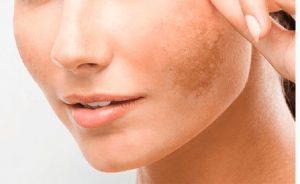How often should I wash my hair?
Haircare is an essential part of looking after your appearance. It’s also important to keep your hair healthy and strong.
There are different types of hair care products on the market, each designed to treat certain issues. Some people use shampoo every day while others only use conditioner.
But there’s no set rule to say how often you should wash your hair. The answer depends on your hair type, the product you’re using, and how often you wash your hair.
In this article, I’ll explain how often you should wash your hair and what kind of hair you have.
What Is Normal Hair Care? Normal hair care means washing your hair once a week or less. This may be because:
You don’t want to dry out your scalp by over-washing it. You can do that with too much shampooing.
Your hair has natural oils in it which protect against drying out. These naturally occurring oils will help prevent damage from excessive water exposure.
If you’ve got long hair, then you might need to wash more frequently than if you had shorter hair. Longer strands take longer to dry so they require extra attention when washed.
If you find yourself needing to wash your hair daily, then you probably have oily hair. Oily hair needs regular cleansing as oil builds up quickly.
When Should You Wash Your Hair? There are two main reasons why you would choose to wash your hair regularly – either for health purposes or hygiene.
Health Reasons To Washing Regularly
Wash your hair at least twice per week to avoid build-up of
Normal hair care means washing your hair once a week or less if it doesn’t get dirty very much. This will help prevent build-up in your scalp which can lead to dandruff.
If you do need to cleanse more than once per week, then follow these tips:
Use Shampoo Only Once A Week
Shampoos contain chemicals that strip away dirt from your scalp. They also remove excess sebum from your skin. If you wash your hair every day, you could end up stripping off all those protective oils leaving your scalp exposed to harsh elements.
Using shampoos multiple times a week can cause problems such as itching, redness, and irritation. So try not to go beyond one application per week.
Conditioners Are For Everyday Use
A good way to maintain healthy hair is to apply a conditioner before showering. Conditioners add moisture back into your hair helping them retain its shape.
They also provide protection against heat styling tools like curling irons and straighteners. Using a conditioner helps reduce frizziness caused by humidity.
So make sure you always use conditioner whenever possible.
Hygiene Reasons Why You Need To Cleanse More Often Than Twice Per Week
the second reason why you’d want to wash your hair more often than just twice per week is due to hygiene concerns.
Dirty hair makes us look unkempt and unattractive. It can even affect our self-confidence.
It’s important to keep your hair looking its best. That includes keeping it clean!
To ensure that your hair stays clean, you need to wash it regularly. But remember, you shouldn’t wash your hair more than three times a week.
Does Hair Texture Play a Role in How Often You Should Wash?
Hair texture plays an important role in how often we should wash our hair. The following factors determine whether you’ll need to wash your hair every day or only once a week:
Length Of Time Between Washes
Longer hair takes longer to dry after being washed. As a result, the risk of damaging your hair increases.
This is especially true if you’re using hot rollers or flat ironing on wet hair.
Types Of Hair And How Frequently You Should Wash Them
Hair Type 1) Dry/Thin Hair
This type of hair requires the most frequent cleaning. The lack of natural oils causes this kind of hair to become brittle and break easily.
As well as being prone to split ends, dry hair tends to lose volume after repeated washes.
Regular washing keeps your hair hydrated and prevents further loss of volume.
Type 2) Curly Or Coarse Hair
Coarse hair types tend to hold onto dirt better than fine hair. As a result, coarse hair may appear greasy after only a few days without a shampoo.
Coarse hair also has a tendency to be difficult to manage because it takes time to comb through.
You’ll therefore benefit from washing your hair every day with a deep conditioning treatment.
Type 3) Fine Hair Fine hair needs regular cleansing but does not require daily washing.
However, when using products containing alcohol, you must limit yourself to no more than four applications per month.
Avoid overwashing your hair too frequently. Overcleansed hair becomes limp and lifeless.
In addition, excessive washing removes essential nutrients from your hair making it weak and susceptible to damage.
Remember, don’t forget about your roots! Roots are especially vulnerable to drying out so they need special attention.
Fine hair usually looks shiny and smooth but does not hold on to dirt as effectively as other kinds of hair. This means that you will have less trouble removing any unwanted buildups.
If you’re using an oil or leave-in product then you might find yourself needing to wash your hair once every two weeks instead of weekly.
Wash Your Hair With A Shampoo Once Every Two Weeks
When choosing which products to buy for your hair, consider how much you actually use each product. If you rarely use one particular brand, then there’s no point buying another bottle when you already own enough.
For example, if you normally use the shampoo once every four months, then you could save money by waiting until next month to purchase a new bottle.
However, if you use a different shampoo every single day, then you would probably prefer to replace it sooner rather than later.
Shampoos For Men: What Are They Made From?
There are many shampoos available today made specifically for men. These include anti-dandruff shampoos, conditioners, styling gels, etc. The main difference between these products is their ingredients. Some contain alcohol while others do not. Others contain moisturizers, proteins, vitamins, minerals, fragrances, preservatives, etc.
Some shampoos are designed to treat specific problems such as dandruff, oily scalp, blackheads, whiteheads, etc. Other shampoos are formulated to provide general care like softening, detangling, nourishing, clarifying, etc.
The best way to choose a good shampoo for men is to read reviews online before purchasing. You can check customer feedback at sites like Amazon, eBay, Google Shopping, etc. There’s nothing worse than spending lots of money on a bad-quality product.
Types Of Shampoos Available Today
1) Alcohol-Free Shampoos
These shampoos typically contain natural oils, aloe vera juice, glycerin, vitamin E, etc. They help cleanse the skin and prevent dryness. However, some people experience irritation due to the presence of alcohol.
2) Conditioning Shampoos
Conditioning shampoos work well for those who suffer from extremely dry scalps. They soften the cuticle layer of the hair shaft allowing moisture to penetrate deeper into the strands.
3) Anti Dandruff Shampoos
Anti-Dandruff shampoos help prevent flakes and flaking skin conditions caused by excess sebum production. Sebum is produced naturally by our bodies during periods of high-stress levels. It helps protect us against bacteria and fungi. However, some people produce more sebum than normal causing them to develop acne breakouts.
4) Oily Scalp Shampoos
Oily scalp shampoos reduce shine and control oils without stripping away natural oils. They also remove impurities and dead cells from the surface of the scalp.
5) Styling Gels And Leave-In Products
Styling gel and leave-in products add body and volume to fine hair. They make hair look thicker and fuller. Many women apply styling gels after blow-drying their hair because this makes it easier to comb through.
6) Detanglers & Clarifiers
Detangler and clarifier shampoos cleanse the hair follicles removing dirt, debris, buildup, and other unwanted substances that cause tangles. This prevents split ends and promotes healthy growth.
7) Moisturizing Shampoos
Moisturizing shampoos hydrate the hair making it softer and smoother looking. They also keep the hair strong and flexible.
8) Protein-Based Shampoos
Protein-based shampoos have protein molecules added to them which strengthen the hair. They also promote healthier hair growth.
9) Vitamin E Rich Shampoo
Vitamin E-rich shampoos are great for treating damaged or brittle hair. They restore strength and elasticity to your hair.
10) Waterproof Shampoos
Waterproof shampoos contain ingredients that allow you to use them in both wet and dry environments. These include sulfates, silicones, alcohols, glycol ethers, parabens, phthalate plasticizers, mineral oil, synthetic fragrances, artificial colors, preservatives, and sodium lauryl/Laureth sulfate.
11) Sulfated Shampoos
Vitamin E-rich shampoos are great for treating damaged or brittle hair. They restore strength and elasticity to the hair helping it grow stronger and shinier.
12) Silicone-Based Shampoos
Silicon-based shampoos moisturize the hair leaving it soft and smooth. They also condition the hair preventing frizziness.
13) Tea Tree Oil Based Shampoos
Tea tree oil has been used as an antiseptic since ancient times. Its antibacterial properties kill germs while its anti-fungal properties eliminate dandruff.
14) Vinegar Based Shampoos
The acetic acid found in vinegar can penetrate deep into the cuticle layer of the hair shaft where it dissolves keratin proteins. The result is a shiny head with fewer flyaways.
15) Coconut Milk Based Shampoos
Coconut milk contains lauric acid which penetrates deeply into the hair shaft creating a protective barrier on the outside of the hair fiber. This protects the hair from environmental factors such as sun exposure and wind drying out the hair.
16) Baking Soda Based Shampoos
Baking soda helps prevent breakage when washing hair. It removes excess sebum, dirt, and product build-up from the scalp.
17) Apple Cider Vinegar Based Champions
Apple cider vinegar works well at getting rid of oily residues and cleansing the scalp. It’s milder than most commercial shampoos so it won’t strip the hair of essential nutrients like vitamins and minerals.
Styling products
If you use styling tools like blowdryers, flat irons, curlers, etc., then you should probably clean them regularly. If you don’t, those tools will build up residue from previous users over time. This buildup could lead to breakage when using these tools. You’ll know if this has happened if your hair feels sticky or heavy.
Hair color
Hair dye isn’t just for coloring blondes anymore!
you have low elasticity indicating your hair isn’t as healthy as it could be Stretches to 50 per cent of its original length: you have high elasticity and healthier hair.
How to check your hair type
Before we get into it, let’s take a look at some basic information on hair types:
Hair Type 1 – Dry/Fine Hair
This is usually associated with people who have very fine strands which are prone to frizziness. This can also mean they need more frequent deep conditioning treatments than others as their hair tends to dry out quicker.
If this describes you then you may want to consider using products designed specifically for dry hair such as shampoos containing protein-rich extracts, vitamin supplements, and oils. You could even try adding avocado to your diet if you find yourself struggling to keep your hair healthy.
Hair Type 2 – Normal Hair
Normal hair is typically thick, strong, and resilient. People with normal hair tend not to suffer from any major problems related to hair health.
However, there are still things you can do to help maintain good hair care habits. For example, avoid over-processing your hair by shampooing too frequently. Also, make sure you don’t leave your hair exposed to harsh chemicals. If you notice your hair becoming dull, lifeless, or thinning, consult your doctor about possible causes.
Hair Type 3 – Curly/Coarse Hair
Curly hair is characterized by tight coils and curls. These curly locks require extra attention because they’re easily tangled and difficult to manage. However, these same qualities give them incredible bounce and volume making them ideal for styling purposes.
Curly hair needs special treatment due to the fact that it’s naturally thicker than other hair textures. Therefore, it requires more moisture and less friction during combing and brushing. To achieve optimal results, use a gentle cleanser formulated especially for curly hair.



